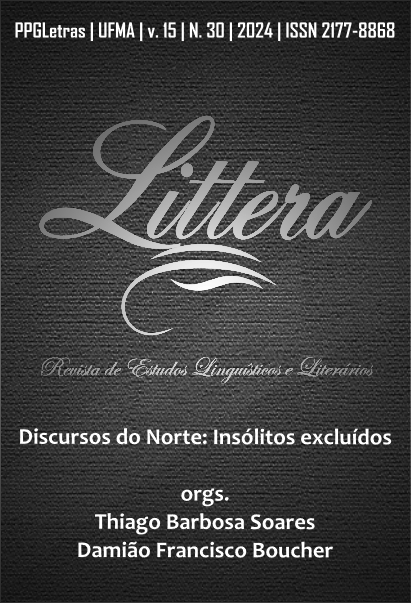The Pedagogical Practices of Portuguese Language Teachers in High School with the Argumentative Typology
DOI:
https://doi.org/10.18764/2177-8868v15n30.2024.22Keywords:
Pedagogical Practices, Portuguese Language, Argumentative TypologyAbstract
The article aims to analyze the results of pedagogical practices with the argumentative typology by Portuguese language teachers who work in High School. The research is qualitative in nature and inspired by action research as a theoretical-methodological principle, based on the parameters established by Tripp (2005). The theoretical assumptions are based on Imbernón (2010); Nóvoa (1991); Marcuschi (2002, 2005); Koch (2000, 2004). The results indicate teachers' interest in different types of language use and strategies for teaching through argumentative texts. However, the data analyzed point to the participants' lack of knowledge regarding types of arguments, referential mechanisms and the use of connectors, as well as metacognitive and contextual strategies for reading and interpreting the text, essential for the student's argumentative ability.
Downloads
References
BAGNO, Marcos. Língua Materna: letramento, variação e ensino / Marcos Bagno, Gilles Gagné, Michael Stubbs. – São Paulo: Parábola Editorial, 2002.
BARDIN, Laurence. Análise de Conteúdo. 1ª edição – Revista e atualizada. São Paulo: Edições 70, 2011.
BRASIL, Ministério da Educação (MEC). Base Nacional Comum Curricular. Educação é a Base. Brasília, 2017/2018.
CITELLI, A. O. O Texto Argumentativo. São Paulo: Scipione, 1994
DUCROT, O. O dizer e o dito. Campinas: Pontes, 1987.
GERALDI, J. W. Portos de passagem. São Paulo: Martins Fontes, 1993.
IMBERNÓN, F. Formação Continuada de Professores. Tradução Juliana dos Santos Padilha Porto Alegre: Artmed, 2010.
KOCH, I. G. V. Argumentação e linguagem. 6. Ed. São Paulo: Cortez, 2000.
KOCH, I. G. V. Argumentação e linguagem. 9 ed. São Paulo: Cortez, 2004.
MARCUSCHI, L. A. Gêneros textuais: definição e funcionalidade. In: DIONÍSIO, A. P.; MACHADO, A. R.; BEZERRA, M. A. (Org.). Gêneros textuais e ensino. Rio de Janeiro: Lucerna, 2002. p. 19-36.
MARCUSCHI, L. A. Produção textual, análise de gêneros e compreensão / Luiz Antônio Marcuschi – São Paulo: Parábola Editorial, 2005.
MENDONÇA, Marina Célia. Língua e ensino: políticas de fechamento. In: MUSSALIM, Fernanda; BENTES, Anna Christina. Introdução à linguística: domínios e fronteiras, v. 2. São Paulo: Cortez, 2003. p. 233-264.
NÓVOA, A. "Concepções e práticas de formação contínua de professores". In Formação Contínua de Professores - Realidades e Perspectivas. Aveiro: Universidade de Aveiro, 1991, pp. 15-38.
Parâmetros Curriculares Nacionais (Ensino Médio). Coord. Zuleika Felice Murrie. Consult. Isabel Gretel M. Eres Fernándes (et al), 2000.
POSSENTI, S. Por que (não) ensinar gramática na escola. Campinas: Mercado de Letras, 1996.
RODRIGUES, L. de A. M. Redação: Um estudo de caso sobre o gênero no ensino fundamental II. Universidade Federal de Pernambuco. (Monografia). 2014.
SILVA, W. R. Articulações entre gramática, texto e gênero em sequências de exercícios didáticos. In: SIGNORINI, I. (Org.). Gêneros catalisadores: letramento e formação do professor. São Paulo: Parábola Editorial, 2006.
SUÁREZ, A. A arte de argumentar: gerenciando razão e emoção. 4ªed. São Paulo: Atelie, 2003.
TRIPP, D. Pesquisa-ação: uma introdução metodológica. Educação e pesquisa, v. 31, p. 443-466, 2005.
Downloads
Published
How to Cite
Issue
Section
License

This work is licensed under a Creative Commons Attribution-NonCommercial-NoDerivatives 4.0 International License.
Direitos autorais Littera on line
Este obra está licenciado com uma Licença Creative Commons Atribuição-NãoComercial-SemDerivações 4.0 Internacional.









